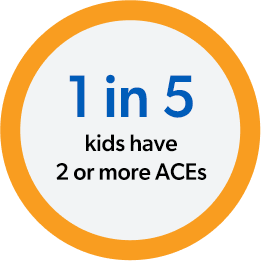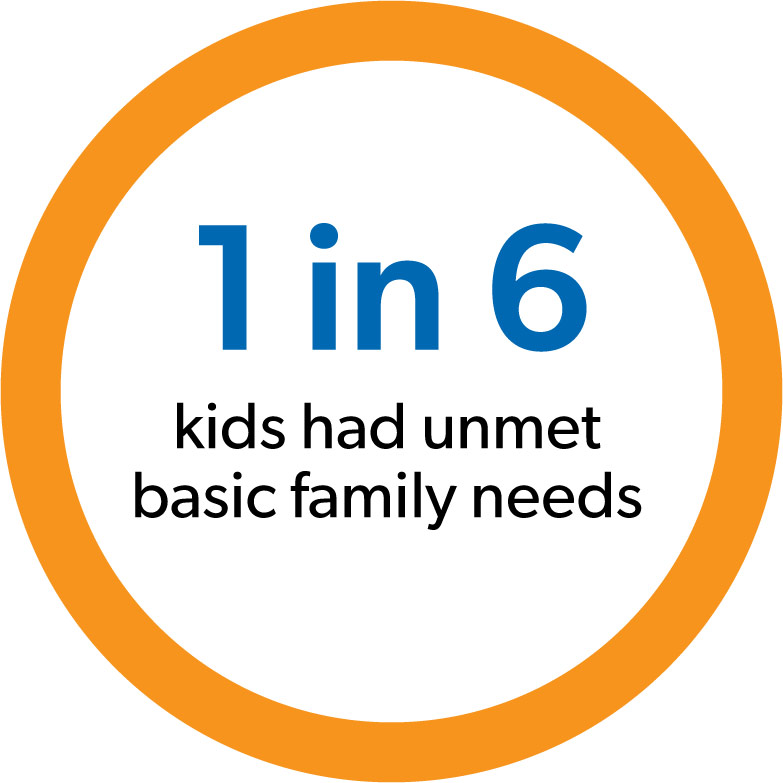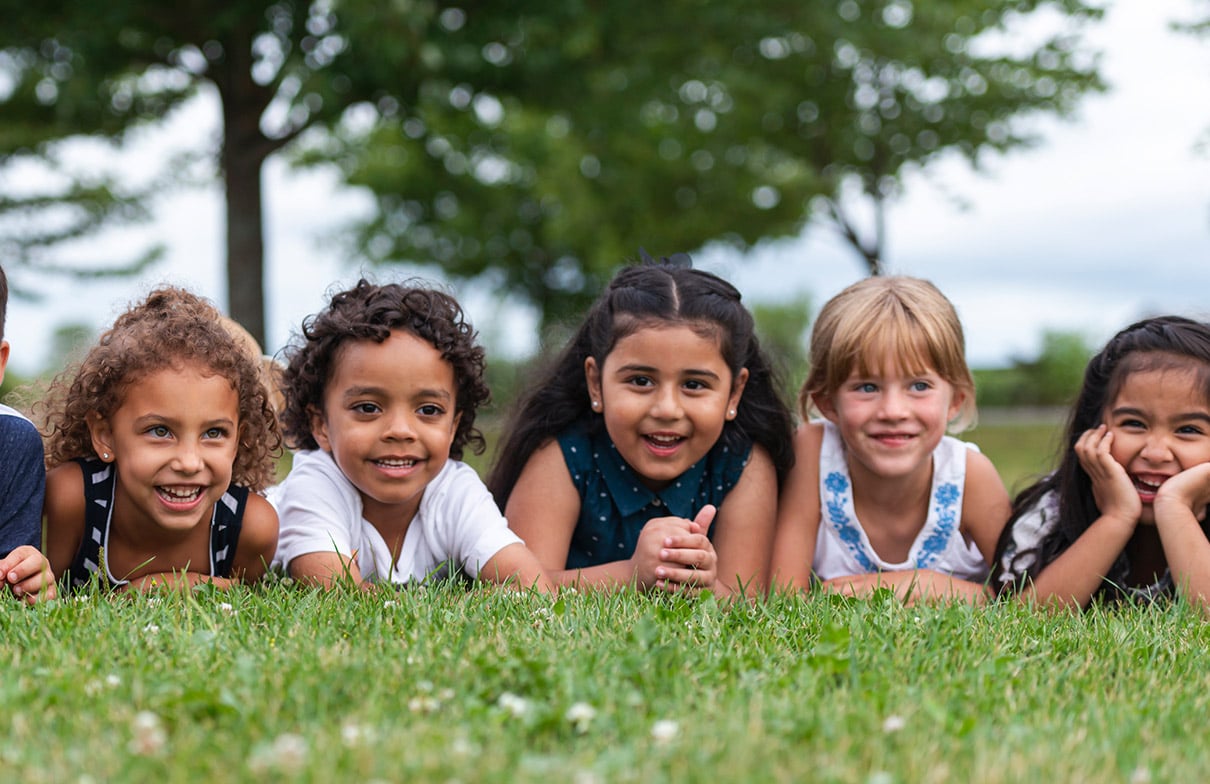Adverse Childhood Experiences (ACEs)
Adverse Childhood Experiences, or ACEs, are traumatic events that occur during childhood that can have lasting mental and physical health effects into adulthood.1 The list of adverse experiences is robust and includes multiple aspects such as experiencing child abuse and neglect, witnessing violence, home and neighborhood safety and systemic discrimination. ACEs are common, but certain factors increase the risk. These factors include poor parent-child relationships, high parenting and economic stress and living in communities with high rates of poverty and limited education and economic opportunities.2
Community insights


In the eight-county primary service area—Collin, Denton, Grayson, Hood, Johnson, Parker, Tarrant, and Wise counties a, nearly 216,600 children (18%) have at least two ACEs, which is comparable to both Texas (18%) and national (18%) estimates.3,4 The most common ACEs in the service area included having difficulty covering basics (i.e., food or housing) on the family income (17%), followed by caregiver divorce or separation (16%).4 From the community leader’s perspective, access to quality and affordable housing, access to affordable, healthy food and living with someone with a substance use disorder or a mental health condition are the most concerning problems for children within their community.4 To learn more about what Cook Children's Health Care System is doing to prevent child abuse and neglect, visit saynotoabuse.org.
Defining ACEs
Adverse Childhood Experiences (ACEs) can have lasting, negative effects on health, well-being and opportunity. The ten ACEs include:
- Intimate partner violence
- Caregiver mental illness
- Caregiver substance abuse
- Caregiver incarceration
- Caregiver separation
- Child physical abuse
- Child neglect
- Child emotional abuse
- Child emotional neglect
- Child sexual abuse
A piece of advice I would give is to always talk to your kids. Let them
know you will always be there for them and you’re on their side.
ACEs/Caregiver support programs
Another approach to building strong, resilient families and preventing child abuse and neglect is through parent and family community support groups. Many evidence-based programs provide structured curricula and a safe space for families to discuss parenting successes, challenges and share ideas, tips and techniques. These support groups also educate parents and caregivers on various child health topics, such as mental health, child development, effective discipline strategies and how to promote positive childhood experiences.

Build a Bridge™
Build a Bridge strengthens connections to healthcare and communities.

Parent Cafés
Parent Cafés allow parents to share experiences, connect, and learn proven parenting tips.
Report suspicion of abuse or neglect
If the child is in immediate danger, call 911. If you need to report a suspicion of abuse or neglect, call 1-800-252-5400 or for non-urgent reports go to txabusehotline.org.
Texas law requires that any person suspecting that a child has been abused or neglected must immediately make a report.
Contact us about our program
For more information, contact breanna.anderson@cookchildrens.org.
References
1Centers for Disease Control and Prevention (CDC). About Adverse Childhood Experiences. Accessed September 2024. https://www.cdc.gov/aces/about/index.html
2American Psychological Association. What is child abuse and neglect? Understanding warning signs and getting help. Accessed September 2024. https://www.apa.org/topics/children/abuse-neglect-resources.
3Child and Adolescent Health Measurement Initiative. Fast Facts: 2022 National Survey of Children’s Health. Data Resource Center for Child and Adolescent Health; 2023. Supported by the US Department of Health and Human Services, Health Resources and Services Administration, Maternal and Child Health Bureau. Accessed July 2024.
www.childhealthdata.org
4Community Health Needs Assessment Report. (2024). Cook Children’s Health Care System. Fort Worth, Texas; or CookChildren’s CHNA 2024 at www.cookchildrens.org/chna (accessed September 2025). https://www.cookchildrenscommunity.org/data